John O’Hern Looks Back On His Groundbreaking Re-presenting Representation Exhibitions.

In 1992, the board of trustees of the Arnot Art Museum in Elmira, New York, revised the museum’s mission to have a “primary focus” on contemporary representational art.
I had discovered Steven Assael’s paintings and drawings at Barbara Staempfli’s gallery in New York in 1991, and I was pleasantly surprised to see an artist addressing contemporary issues with a mastery of traditional technique.
My mentors composed a list of artists for us to consider beginning with Andrew Wyeth and Lucien Freud and the caveat that the artists had to be academically trained. I told them we needed to explore the un-vetted or less-vetted because I had begun to discover great work that wasn’t being shown in museums.
Our curator, Rachael Sadinsky, showed us how exciting that area could be in her exhibitions Seven Visions: The Spirit of Religion in Contemporary Art and Jerome Witkin’s Dreams, Portraits & Murders.
I put my own curatorial skills to the test and mounted the first of seven biennial Re-presenting Representation exhibitions in 1993. The title was an awkward working title that stuck—we were RE-presenting representational work after its submersion under all the “-isms” of the 20 th century, and only representing the growing number of artists who were beginning to emerge from academies and not. My idea of “representation” spanned from the nearly abstract to the photorealistic in all media including glass. When asked to explain it I replied with scholarly precision, “It’s stuff you can recognize.”
Denne historien er fra December 2018-utgaven av American Art Collector.
Start din 7-dagers gratis prøveperiode på Magzter GOLD for å få tilgang til tusenvis av utvalgte premiumhistorier og 9000+ magasiner og aviser.
Allerede abonnent ? Logg på
Denne historien er fra December 2018-utgaven av American Art Collector.
Start din 7-dagers gratis prøveperiode på Magzter GOLD for å få tilgang til tusenvis av utvalgte premiumhistorier og 9000+ magasiner og aviser.
Allerede abonnent? Logg på

FULL EXPOSURE
Photographer Conor Martin documents the present using photographic methods of the past.
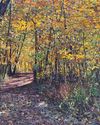
Autumnal Light
The landscapes and nature scenes of painter Jennifer Sowders are irresistibly tactile, filled with varying textures that seem to leap off the canvas.
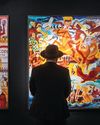
Art for All
Members of Art Dealers Association of America come together for a philanthropic affair.
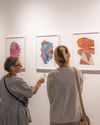
Modern Marketplace
Redwood Art Group brings together the San Diego region for another class-act celebration of contemporary artwork.
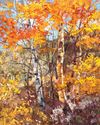
An Enchanting Evening
Scottsdale Artists’ School knows how to throw an art party.

Timeless Tales
Soft, warm undertones underscore the mood of enchantment that runs through Nom Kinnear King’s paintings.

Next Exit New York
Coming off his series that focused on San Francisco and Los Angeles freeway signs, artist Eric Nash’s sights are now set on New York. Now on view at George Billis Gallery's Manhattan location are seven of Nash's new oil paintings and two drawings that explore the signage of New York City freeways. Although Nash's work is tightly rendered, he doesn’t consider himself a photorealist, but rather someone who utilizes those techniques to express ideas.

Monster Mash
Vampires, witches, ghouls and all things that go bump in the night are the theme of the exhibition Monster Mash, now at Abend Gallery.
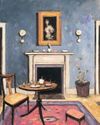
Inside/Outside
Those familiar with Geoffrey Johnson's populated by inky figures and trailing shadows that bleed into the wet streets, and architectural elements obscured to varying degrees by the misty atmosphere.
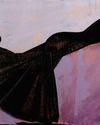
Bold Figures; Bold Color
For Brooklyn based painter J Louis, it’s all about balance, which can mean many different things in a composition, but for Louis, it’s about balancing his female figures among a unique landscape of color.